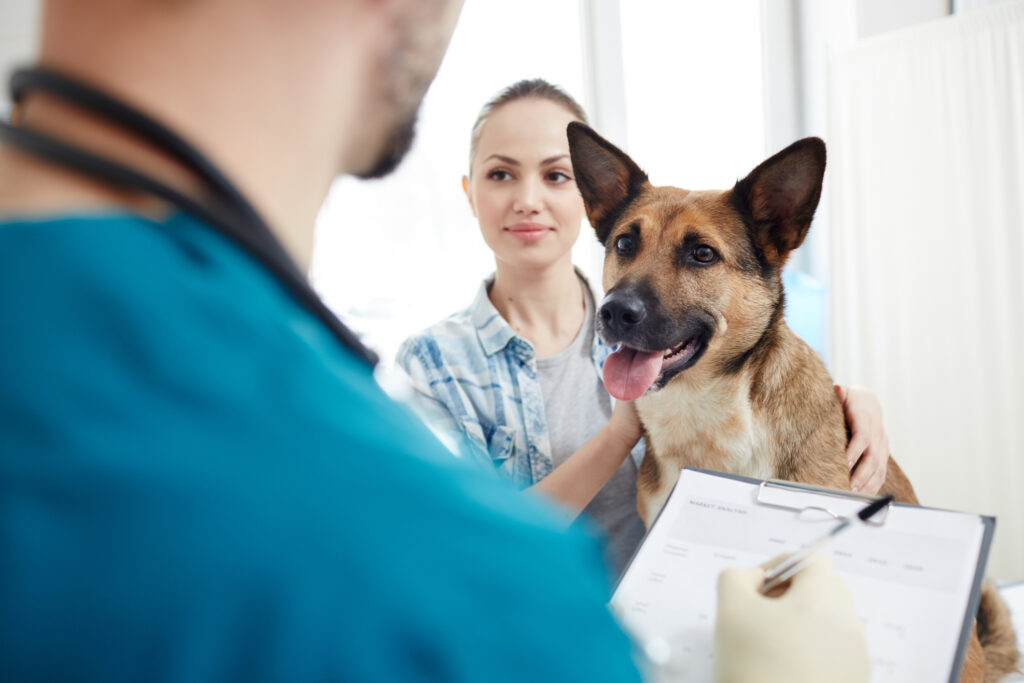
As the UK’s professional representative body for veterinary nursing, BVNA has issued a full response to the Competition and Markets Authority (CMA)’s proposed remedies for the UK veterinary market for household pets. BVNA is also one of the main parties which has engaged with the CMA throughout its investigation.
The response, published jointly alongside the British Veterinary Association (BVA), British Small Animal Veterinary Association (BSAVA), Veterinary Management Group (VMG) and Society of Practising Veterinary Surgeons (SPVS), addresses the potential remedies and measures proposed by the CMA in its most recent working paper.
BVNA welcomed the opportunity to respond to each of these potential remedies, and is encouraged by the efforts made by the CMA to understand the veterinary sector and the contexts in which veterinary care is provided.
The working paper recognised the need for long overdue reform of the outdated Veterinary Surgeons Act 1966, which BVNA has long called for. Proposed areas for reform crucially include statutory protection of the ‘veterinary nurse’ title, expansion of the Registered Veterinary Nurse (RVN) role, and the regulation of veterinary businesses rather than solely individual vets and RVNs. In addition, the potential remedies also reflected BVNA’s calls for improved clarity within existing legislation, enabling both vets and RVNs to feel more confident with delegation under Schedule 3 and therefore encourage far greater utilisation of RVNs.
However, BVNA has raised a number of concerns in relation to the volume and proportionality of the measures, the subsequent impact on veterinary businesses and especially smaller independent practices, and the significant burden which would be placed on veterinary professionals whilst attempting to implement all of the suggested measures at once.
Overarching concerns outlined in the response include:
Proportionality: The package of remedies as set out in the CMA working paper is too extensive and disproportionate to the CMA’s concerns, leading to a significant and unacceptable administrative burden on practices.
Disproportionate impact on small independent practices: The remedies would disproportionately negatively impact smaller independent businesses, which would likely have to increase fees to maintain financial viability.
Cost: Many of the proposed remedies necessitate the development of additional technologies, which would also disproportionately impact smaller businesses and could also lead to increased costs for clients.
Wider impact on veterinary services: The current investigation is solely focused on veterinary services for household pets, however mixed practice providing care for both companion animals and larger species would be impacted by the proposed remedies.
Unintended consequences: The suggested remedies would lead to an increase in the cost of providing veterinary services due to the significant additional burdens placed on veterinary businesses, which would inevitably lead to increased fees to clients. This could lead to a negative impact on animal welfare, where pet owners already struggling to afford veterinary care may either delay or avoid seeking veterinary care for their pet.
BVNA President Lyndsay Hughes commented: “Throughout the CMA investigation, BVNA has championed the role of veterinary nurses in delivering high quality patient care, and enhancing the relationship between the veterinary team, client and patient. Ultimately, veterinary nurses contribute significant and important value to veterinary businesses.
“We welcomed the opportunity to respond to the CMA’s draft remedies on behalf of our members. The working paper clearly demonstrates the efforts which have been made to understand the intricacies of the veterinary sector, and also to understand the caring and dedicated professionals working within it.
“BVNA also welcomes the CMA’s acknowledgement that veterinary nurses could – and should – be utilised more effectively, for the benefit of animal welfare and consumers, alongside veterinary teams and businesses. We are therefore encouraged by the recommendations specifically surrounding veterinary nurses, to include protection of the ‘veterinary nurse’ title, better clarification of the existing legislative framework, and future legislative reform to expand the RVN role – plus to regulate veterinary practices.
“However, in formulating this joint response, we have also provided the veterinary nursing voice throughout all other areas of the package of potential remedies. We have shared our concerns with the CMA surrounding the overall proportionality and potential unintended consequences of these proposed measures, which could include increased costs to clients and in turn, a negative impact on animal health and welfare. We have urged the CMA to reconsider these measures to ensure they are achievable and proportionate.
“BVNA will continue to provide a strong and clear voice for its members and the veterinary nursing profession throughout the remainder of the CMA investigation.”
